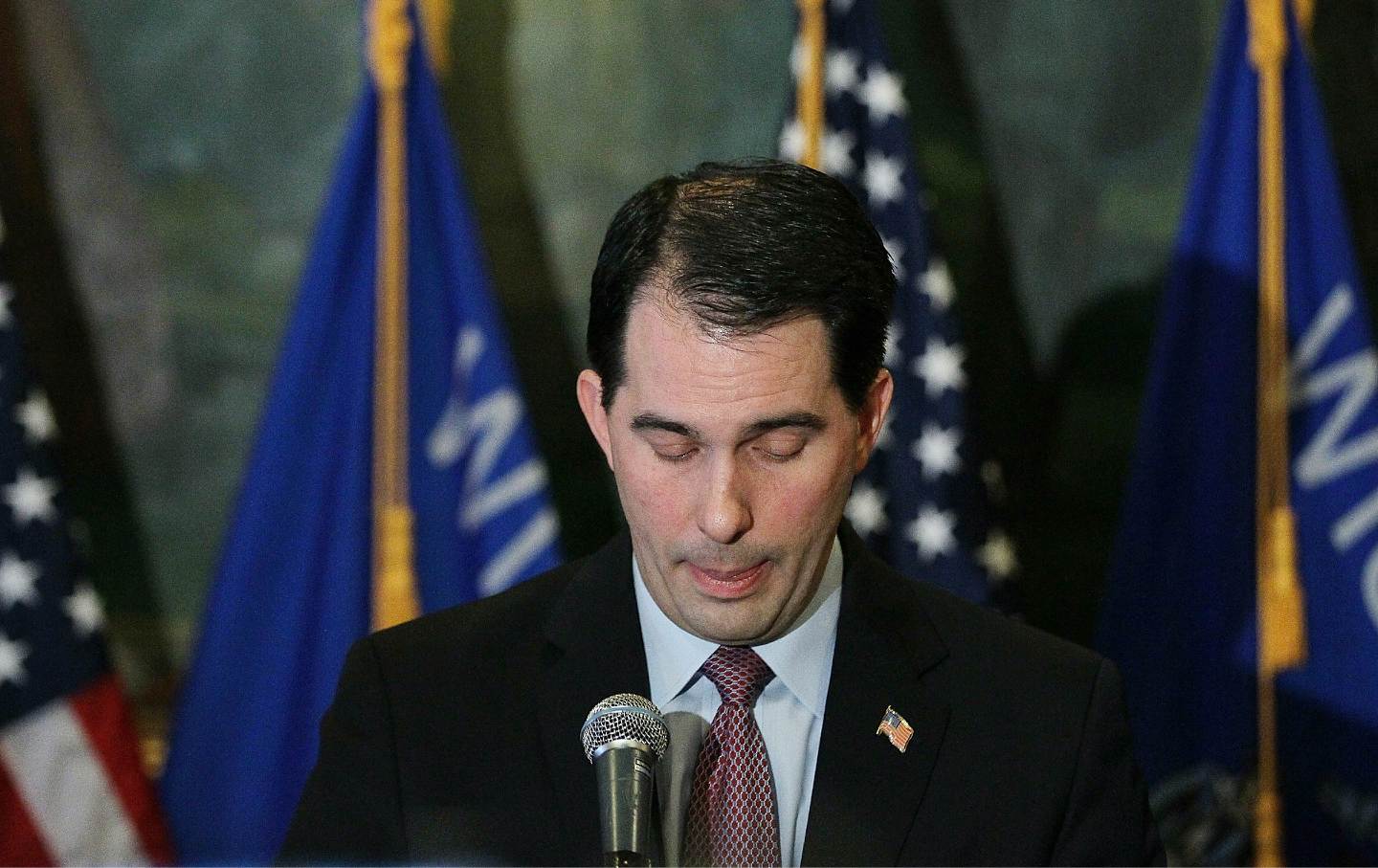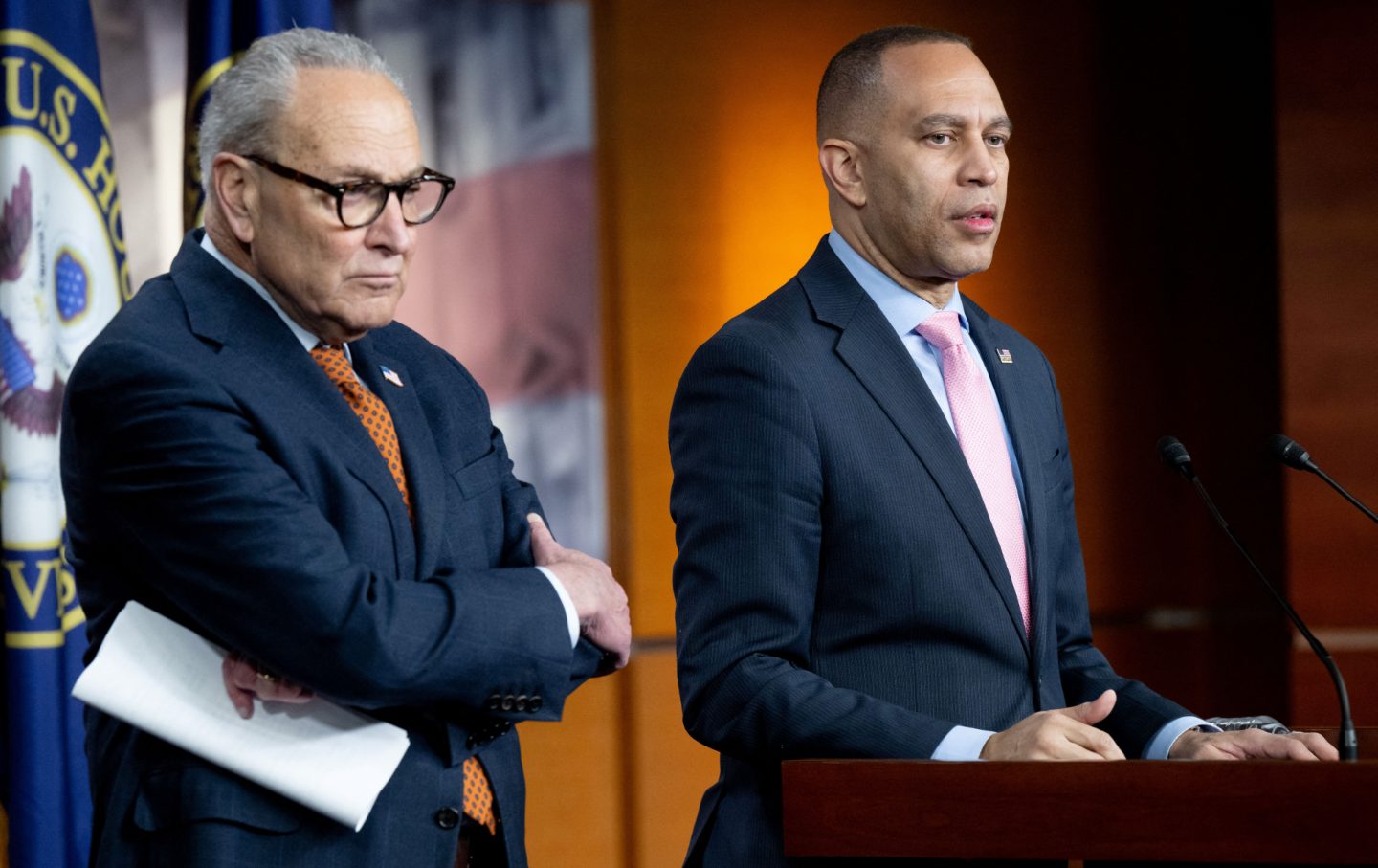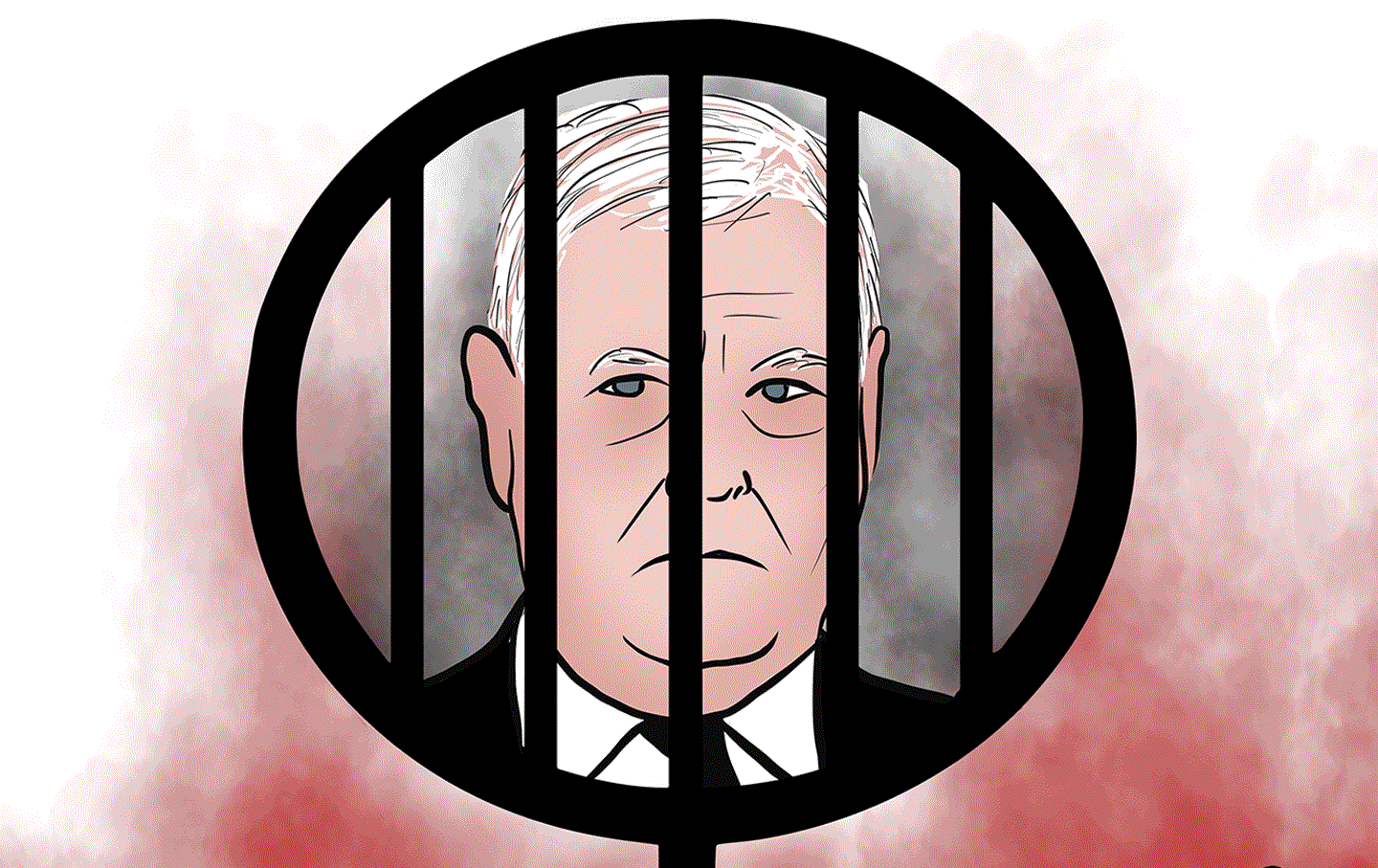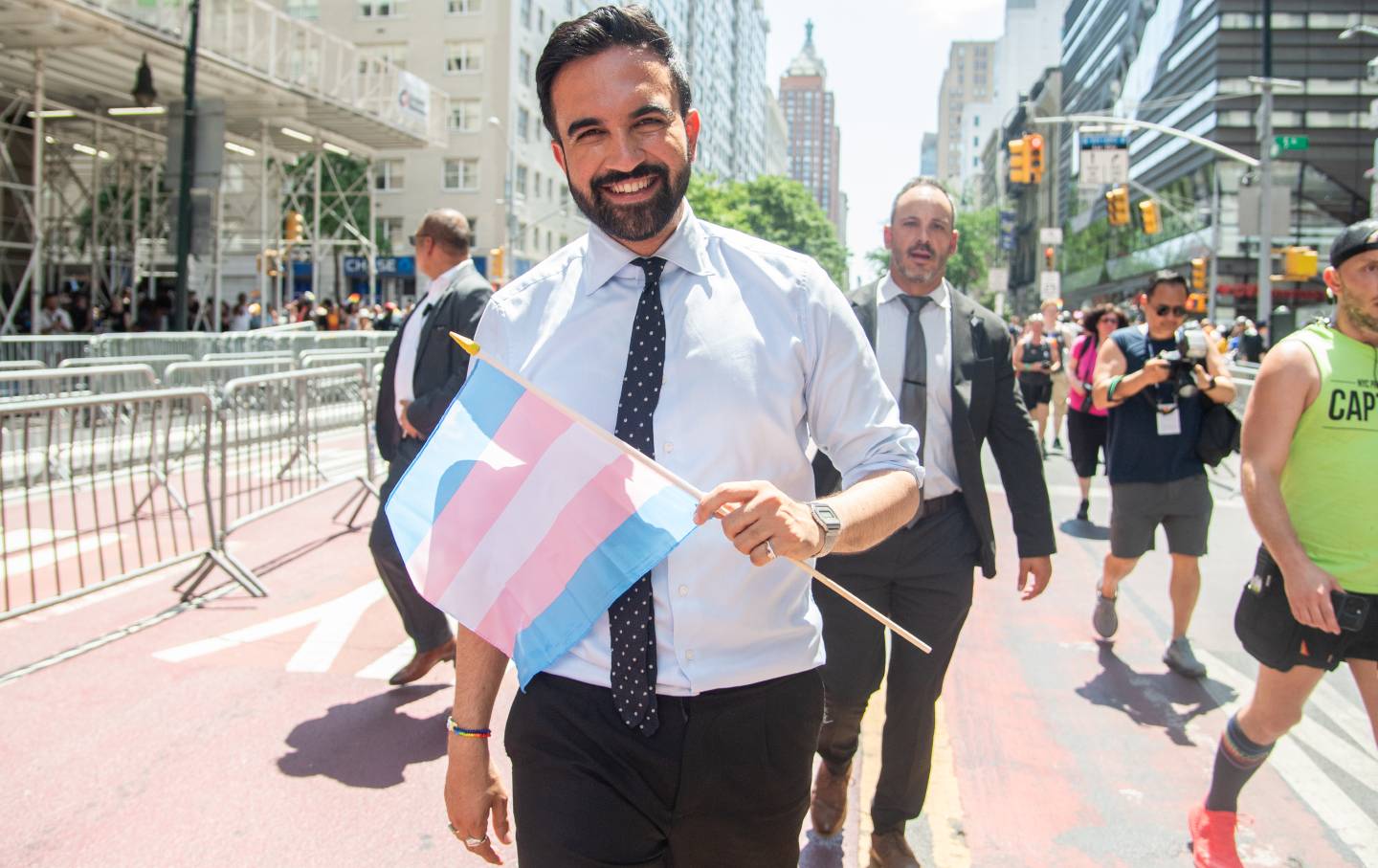Scott Walker’s Anti-Union Law Could Be Undone by a Court That Respects the Constitution
A right-wing state Supreme Court upheld the Wisconsin governor’s assault on workers. But the court now has a progressive majority and unions are challenging the law.

Wisconsin Governor Scott Walker during a press conference at the Wisconsin State Capitol on March 7, 2011, in Madison, Wis.
(Justin Sullivan / Getty Images)What was most notable about former Wisconsin Governor Scott Walker and his allies in the Republican-controlled state legislature during the 2011 fight to upend collective bargaining rights and other protections for public-sector unions was a determination to win at any cost. Walker’s sweeping Act 10 proposal, which came at the opening of his eight-year tenure as governor, was so unpopular that it sparked mass protests in Wisconsin and skepticism from several moderate Republican legislators.
So Walker and his allies pushed hard to get the bill over the line. So hard, it was charged at the time, that the process by which their “Budget Repair Bill” was enacted—as well as the version of the measure that was finally passed—did not pass constitutional muster. There were numerous legal challenges to the legislation and lower-court victories for those who asserted that it was unconstitutional.
That wasn’t a tough case to make. To pass the law, Republican legislative leaders jiggered rules to alter the number of votes needed to approve a measure that dramatically undermined the ability of some public-sector workers to organize unions and collectively bargain. Just as troubling was the fact that the legislation was written in a way that singled out some union members for protections—particularly members of police and firefighters union locals that just happened to have endorsed Walker—that were denied to others.
In 2012, Dane County Circuit Court Judge Juan Colas struck down Act 10 on the grounds that it violated both the Wisconsin and US Constitutions. Specifically, Judge Colas ruled that the differential treatment of specific unions and their members violated First Amendment guarantees of freedom of association and expression, not to mention the equal protection guarantees that are a bedrock of constitutional law.
But Walker had an ace up his sleeve. The state Supreme Court was then controlled by a conservative majority, which included members who were ideologically aligned with Walker’s anti-labor agenda and, in several cases, had histories of working with Walker in the political trenches. So, even if unions won cases in the lower courts, Walker could be confident that their efforts would be stymied in the one court that mattered above all others. And, finally, on July 31, 2014, the Wisconsin Supreme Court declared Act 10 constitutional in its entirety. The 5-2 vote left little room for future challenges, even though the argument that the law was unconstitutional remained compelling.
The case, it seemed, was closed—until the voters intervened.
Since 2014, the makeup of the high court has been radically altered by Wisconsin electors. In critical contests for 10-year terms on the Supreme Court, progressives won landslide election victories in 2015, 2018, 2020, and 2023, ending the dominance of the court by Walker’s anti-labor conservatives. With the April 2023 election win by Justice Janet Protasiewicz, the court now has a 4-3 majority that could well be inclined to reconsider the constitutionality of Act 10. And they will likely get a chance to do so.
Last week, a coalition of unions, including several affiliates of the Wisconsin Education Association Council, AFSCME, and the Teamsters, as well as SEIU Wisconsin and the Teaching Assistants Association (TAA/AFT)—which represents graduate student workers on the University of Wisconsin–Madison campus and is the oldest graduate students union in the world—filed a lawsuit demanding that Act 10 be struck down.
Noting the exemptions Walker included for police and fire units, the plaintiffs argued that “Wisconsin’s statute unconstitutionally discriminates against most public sector workers, denying their freedom to negotiate with employers on subjects beyond base wages and to be represented by a union without jumping through the hoops of burdensome annual recertification election.”
Maddie Topf, a copresident of the TAA, says the case comes down to a simple premise: “State-employed workers, such as graduate assistants like myself, should be guaranteed the same rights as public safety workers. We contribute so much to our communities, and we deserve a voice on the job.”
Walker is still championing his law, arguing, “This lawsuit would cause irreparable damage to our schools and to our counties and our local governments across the state and I hope people will realize that’s what’s at stake.”
But the unions that are bringing the suit say they are well aware of what’s at stake.
“Union members are filing the lawsuit now because of the dire situation that exists in our workplaces. Low pay, staffing shortages and worsening working conditions are hurting our ability to deliver public services to the communities that count on us every day,” the plaintiffs explained in a joint statement. “Just this week, the Milwaukee Journal Sentinel reported on toxic work culture where workers face regular harassment with little protection and the Wisconsin Policy Forum released a report on falling teacher pay, a leading factor of staffing shortages in schools.”
Popular
“swipe left below to view more authors”Swipe →That’s certainly a serious consideration for Betsy Ramsdale, a teacher and copresident of the Beaver Dam Education Association, who explained, “For over a decade, the deck has been stacked against educators like me. Teachers and support staff work in partnership with parents to teach students about compromise and collaboration, but school districts aren’t required to do the same. It’s frustrating and demoralizing, and a huge reason Wisconsin doesn’t have enough staff to meet student needs.”
The law is also, as Judge Colas noted a decade ago, in conflict with the state and federal Constitutions—a reality that the Wisconsin Supreme Court may finally be prepared to address.
More from The Nation

Trump’s Reason For War in Iran? Trump’s Reason For War in Iran?
Obliterating the Epstein files at any cost.

Why Can’t Top Democrats Just Say “No War With Iran”? Why Can’t Top Democrats Just Say “No War With Iran”?
The response to what could be the biggest geopolitical disaster of the 21st century is foot-dragging, silence, and sleepy, feigned opposition long after the deed is done.

This Is an Unnecessary, Unauthorized, and Unconstitutional War This Is an Unnecessary, Unauthorized, and Unconstitutional War
Congress has a duty to take up War Powers resolutions and assert its primacy over matters of war and peace.

Will There Be Justice for Survivors? Will There Be Justice for Survivors?
The Epstein files have renewed scrutiny of alleged misconduct by powerful figures, including Donald Trump and Prince Andrew, raising ongoing questions about accountability and just...

New York City Hospitals Fold to Trump. Will Zohran Mamdani Defend Trans Care? New York City Hospitals Fold to Trump. Will Zohran Mamdani Defend Trans Care?
As a candidate, Zohran Mamdani made promises to New York City’s trans community. With two hospital systems ending trans youth care, he’s now facing his first test.

This Minnesota Winter Is the New Prague Spring This Minnesota Winter Is the New Prague Spring
I’ve studied Czechoslovakia in 1968. I live in Minneapolis. The similarities between the historic invasion and the current ICE “surge” are scary.


